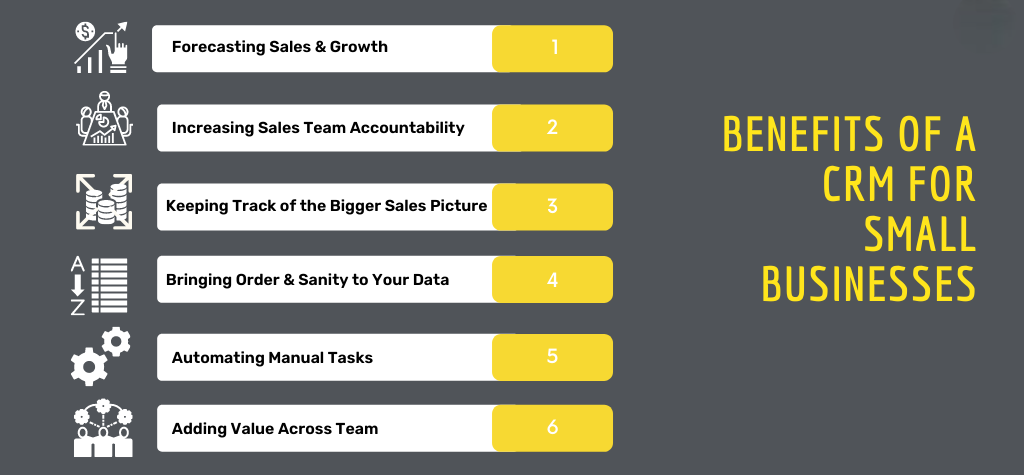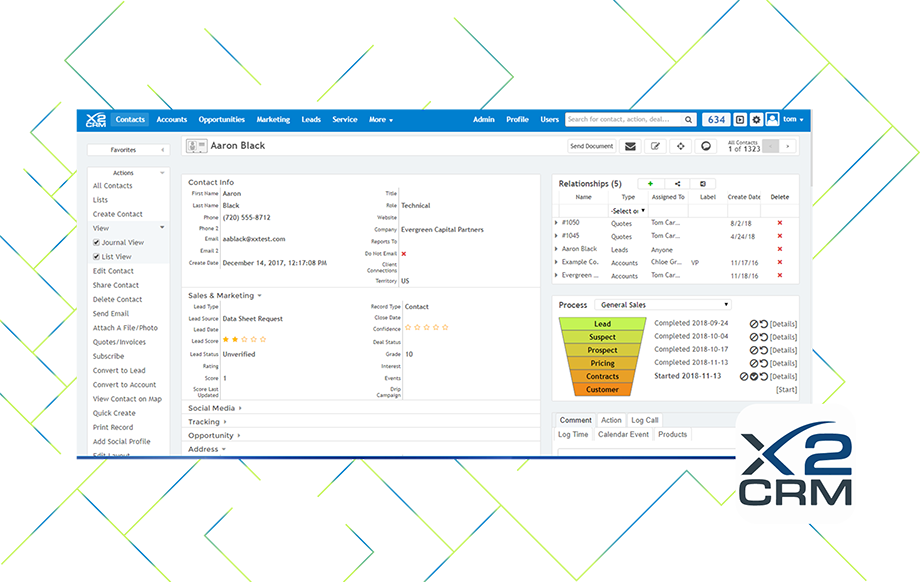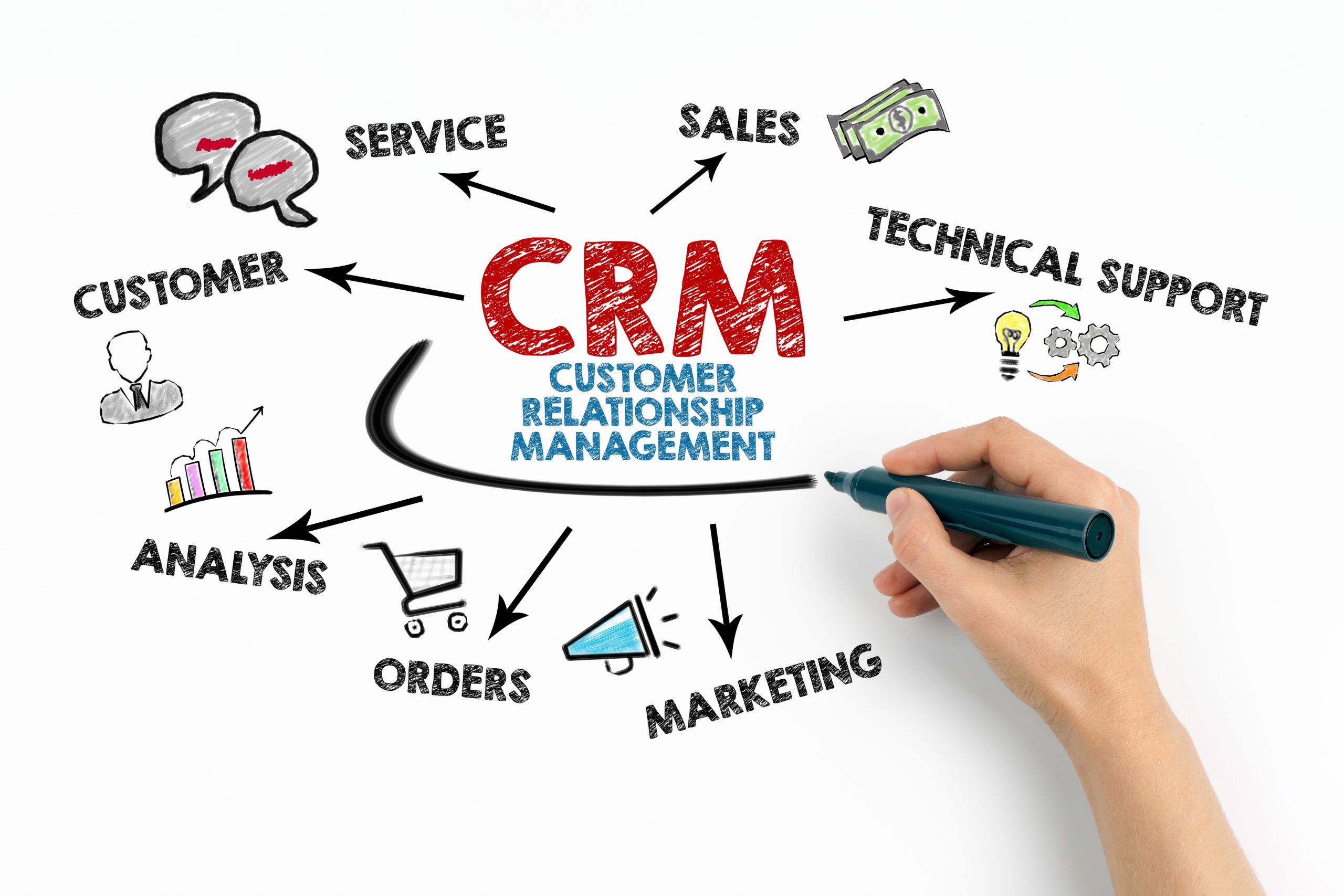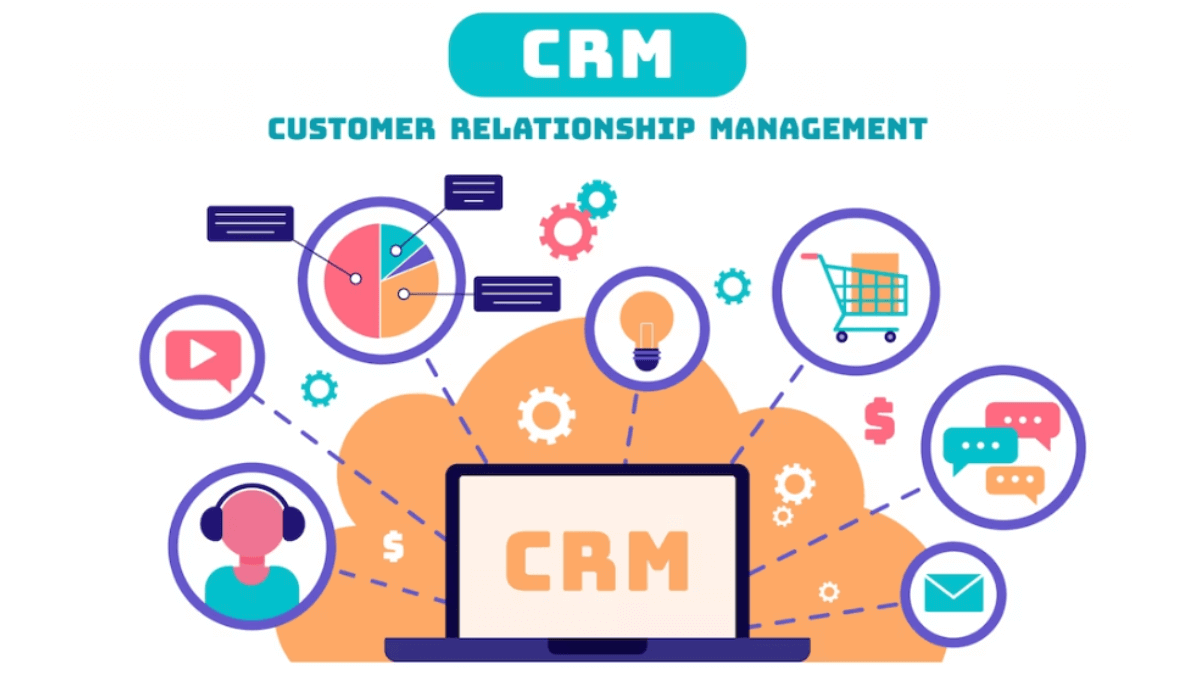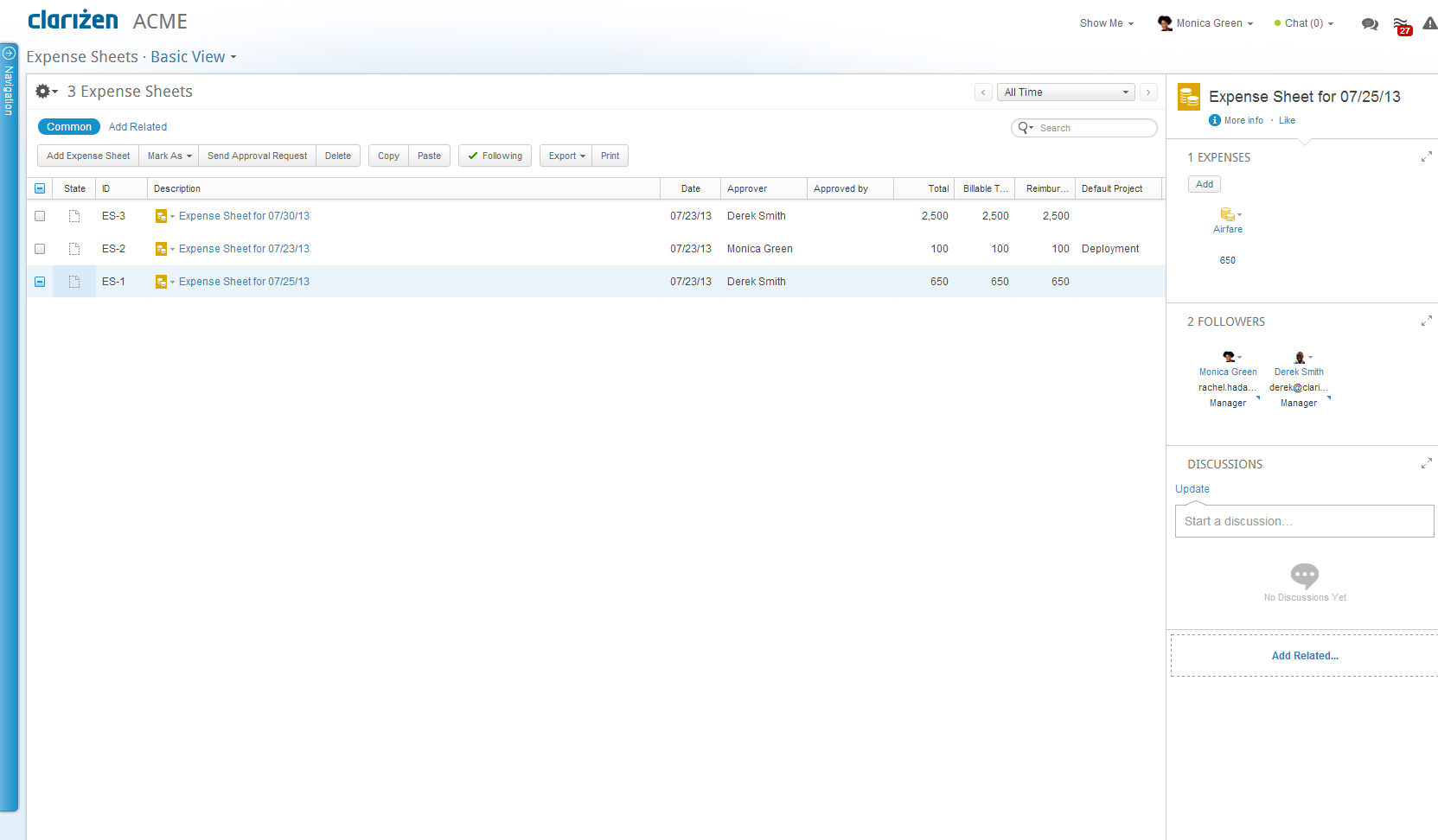Small Business CRM Basics in 2025: Your Ultimate Guide to Customer Relationship Management
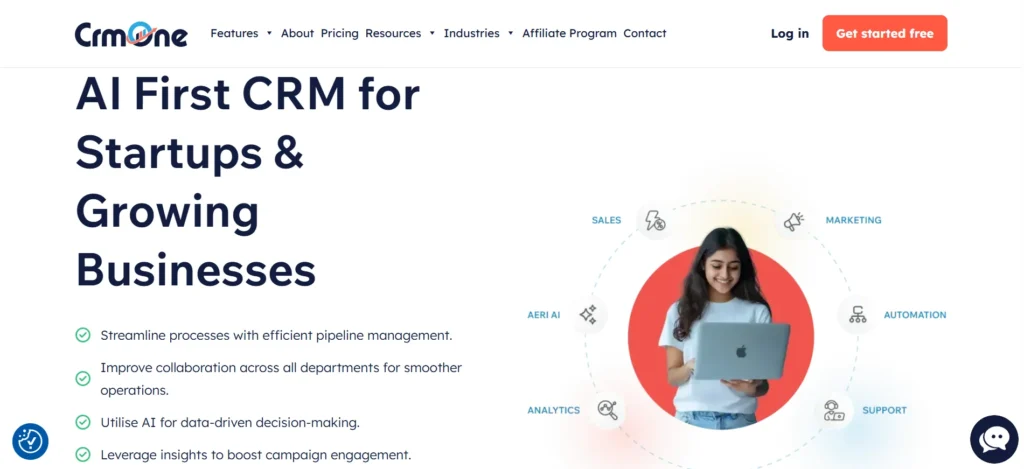
Small Business CRM Basics in 2025: Your Ultimate Guide to Customer Relationship Management
Running a small business is a whirlwind of activity. You’re juggling everything from product development and marketing to sales and customer service. In the midst of all this, it’s easy for customer relationships to get lost in the shuffle. That’s where Customer Relationship Management (CRM) systems come in. In 2025, understanding the basics of CRM is no longer optional; it’s a necessity for survival and growth. This guide will walk you through everything you need to know about CRM for small businesses, helping you navigate the landscape and choose the right tools to thrive.
What is CRM and Why Does Your Small Business Need It?
At its core, CRM is a technology that helps you manage all your company’s relationships and interactions with current and potential customers. It’s a central hub for all customer data, including contact information, purchase history, communication logs, and more. Think of it as the digital brain of your customer relationships.
Why is this so important? Well, consider these benefits:
- Improved Customer Relationships: CRM allows you to personalize interactions and provide better customer service, leading to higher customer satisfaction and loyalty.
- Increased Sales: By tracking leads, automating sales processes, and identifying opportunities, CRM can significantly boost your sales performance.
- Enhanced Efficiency: CRM automates many manual tasks, freeing up your team to focus on more strategic activities.
- Better Data Analysis: CRM provides valuable insights into customer behavior, sales trends, and marketing effectiveness, helping you make data-driven decisions.
- Streamlined Communication: Centralized data ensures everyone on your team has access to the same information, fostering better collaboration and communication.
In 2025, the competitive landscape is fiercer than ever. Customers have more choices, and they expect personalized experiences. A CRM system is no longer a luxury; it’s a strategic advantage that can help you stand out from the crowd.
Key Features of a CRM System for Small Businesses
Not all CRM systems are created equal. When choosing a CRM for your small business, look for these essential features:
1. Contact Management
This is the foundation of any CRM. It allows you to store and manage all your customer contact information in one centralized location. Key features include:
- Contact Details: Name, address, phone number, email, and social media profiles.
- Segmentation: Ability to categorize contacts based on demographics, interests, or purchase history.
- Lead Scoring: Assigning points to leads based on their engagement and potential to convert.
- Import and Export: Seamlessly import and export contact data from various sources.
2. Sales Automation
Sales automation streamlines your sales processes, saving time and increasing efficiency. Key features include:
- Lead Management: Tracking leads from initial contact to conversion.
- Sales Pipeline Management: Visualizing the sales process and tracking deals through different stages.
- Task Automation: Automating repetitive tasks like sending emails, scheduling follow-ups, and creating invoices.
- Sales Reporting: Generating reports on sales performance, conversion rates, and other key metrics.
3. Marketing Automation
Marketing automation helps you nurture leads and engage with customers through targeted campaigns. Key features include:
- Email Marketing: Creating and sending automated email campaigns.
- Segmentation: Targeting specific customer segments with personalized content.
- Social Media Integration: Managing social media interactions and tracking engagement.
- Campaign Tracking: Measuring the effectiveness of your marketing campaigns.
4. Customer Service and Support
Excellent customer service is crucial for building customer loyalty. Key features include:
- Ticketing System: Managing customer inquiries and support requests.
- Knowledge Base: Providing self-service resources for customers.
- Live Chat: Offering real-time support to customers.
- Customer Feedback: Collecting and analyzing customer feedback.
5. Reporting and Analytics
Data is your most valuable asset. Reporting and analytics features provide insights into your business performance. Key features include:
- Sales Reports: Tracking sales performance, revenue, and other key metrics.
- Marketing Reports: Measuring the effectiveness of your marketing campaigns.
- Customer Service Reports: Analyzing customer service performance and identifying areas for improvement.
- Customizable Dashboards: Creating personalized dashboards to track the metrics that matter most to your business.
Choosing the Right CRM for Your Small Business in 2025
Selecting the right CRM can feel overwhelming, but breaking down the process into manageable steps will help. Consider the following factors:
1. Define Your Needs and Goals
Before you start looking at different CRM systems, take the time to define your specific needs and goals. What problems are you trying to solve? What do you want to achieve with a CRM? Consider these questions:
- What are your current challenges? Are you struggling with lead management, sales tracking, or customer service?
- What are your business goals? Do you want to increase sales, improve customer satisfaction, or streamline your operations?
- What features are essential for your business? Make a list of the features you absolutely need in a CRM system.
- What is your budget? Determine how much you can afford to spend on a CRM system.
2. Research CRM Systems
Once you have a clear understanding of your needs and goals, it’s time to research different CRM systems. Some of the top CRM providers for small businesses in 2025 include:
- HubSpot CRM: A popular choice for its free plan and user-friendly interface, ideal for startups and small businesses.
- Zoho CRM: Offers a comprehensive suite of features at a competitive price point, suitable for growing businesses.
- Salesforce Sales Cloud: A powerful and customizable CRM system, often used by larger businesses, but also offers solutions for small businesses.
- Pipedrive: A sales-focused CRM that’s known for its simplicity and ease of use.
- Freshsales: A CRM designed for sales teams, offering features like built-in phone and email.
Read reviews, compare features, and explore pricing plans to narrow down your choices.
3. Consider Your Budget
CRM systems come in a variety of pricing models, from free plans to enterprise-level solutions. Determine your budget and find a CRM that fits your financial constraints. Consider these factors:
- Subscription Fees: Most CRM systems operate on a monthly or annual subscription basis.
- Number of Users: Pricing often depends on the number of users who will be using the system.
- Features and Add-ons: More advanced features and add-ons may require additional fees.
- Implementation Costs: Some CRM systems may require professional implementation services.
4. Evaluate Ease of Use and Integration
A CRM system is only useful if your team can actually use it. Look for a system that is easy to navigate, has a user-friendly interface, and offers good customer support. Also, consider how well the CRM integrates with your existing tools and systems, such as your email marketing platform, accounting software, and website.
5. Test Drive and Get a Demo
Many CRM providers offer free trials or demos. Take advantage of these opportunities to test the system and see if it’s a good fit for your business. During the trial period, try out the key features, explore the interface, and get a feel for the overall user experience. Ask questions and make sure the CRM meets your specific needs.
Implementation and Training: Getting Started with Your CRM
Once you’ve chosen a CRM system, the next step is implementation. This can be a complex process, so plan carefully and take these steps:
1. Data Migration
Transferring your existing customer data from your old systems to your new CRM is crucial. This may involve cleaning, formatting, and importing your data. Ensure that all your data is accurate, up-to-date, and properly organized.
2. Customization
Most CRM systems allow for customization. Tailor the system to fit your specific business needs. This may involve creating custom fields, configuring workflows, and setting up integrations with other tools.
3. Training
Provide comprehensive training to your team on how to use the CRM system. This will ensure that everyone understands how to use the system effectively and can take full advantage of its features. Consider offering training sessions, creating user guides, and providing ongoing support.
4. Ongoing Support and Maintenance
CRM systems require ongoing support and maintenance. Ensure that you have a plan in place to address any issues or challenges that may arise. This may involve contacting the CRM provider for technical support, updating the system with the latest features, and regularly reviewing your CRM processes to ensure they are efficient and effective.
CRM Best Practices for Small Businesses in 2025
To maximize the benefits of your CRM system, follow these best practices:
1. Keep Your Data Clean and Up-to-Date
Regularly review and update your customer data to ensure its accuracy. This will help you personalize your interactions, target your marketing efforts, and make informed decisions. Implement data validation rules and use data cleansing tools to maintain data quality.
2. Use Automation to Your Advantage
Automate repetitive tasks, such as sending emails, scheduling follow-ups, and creating invoices. This will free up your team to focus on more strategic activities, such as building relationships with customers and closing deals.
3. Integrate Your CRM with Other Tools
Integrate your CRM with other tools, such as your email marketing platform, accounting software, and website. This will streamline your workflows, improve data accuracy, and provide a more holistic view of your customer relationships.
4. Analyze Your Data Regularly
Use your CRM’s reporting and analytics features to track your key performance indicators (KPIs), such as sales performance, customer satisfaction, and marketing effectiveness. This will help you identify areas for improvement and make data-driven decisions.
5. Provide Excellent Customer Service
Use your CRM to provide excellent customer service. Respond to customer inquiries promptly, resolve issues efficiently, and personalize your interactions. This will help you build customer loyalty and increase customer retention.
6. Train Your Team Consistently
Make sure your team is well-versed in how to use the CRM. Offer ongoing training and refresher courses to ensure everyone is utilizing the system to its full potential. This will maximize the return on your CRM investment.
7. Embrace Mobile Accessibility
In 2025, mobile CRM is a must-have. Ensure your chosen CRM has a robust mobile app or is fully responsive so your team can access customer data and manage interactions on the go. This is especially important for sales teams who spend a significant amount of time in the field.
The Future of CRM for Small Businesses
The CRM landscape is constantly evolving, and in 2025, we can expect to see even more advancements:
- Artificial Intelligence (AI): AI-powered CRM systems will offer even more advanced features, such as predictive analytics, automated recommendations, and personalized customer experiences.
- Hyper-Personalization: Businesses will leverage CRM data to deliver highly personalized experiences to their customers, anticipating their needs and providing tailored solutions.
- Integration with IoT: CRM systems will integrate with the Internet of Things (IoT) to collect data from connected devices, providing even deeper insights into customer behavior.
- Increased Focus on Privacy: Data privacy will be a top priority, and CRM systems will need to comply with strict data privacy regulations.
- Rise of No-Code/Low-Code CRM: More user-friendly and customizable CRM platforms will emerge, allowing small businesses to tailor the system to their needs without extensive technical expertise.
Staying ahead of the curve requires constant learning and adaptation. Keep an eye on these trends to ensure your small business is prepared for the future of CRM.
Conclusion: Embracing CRM for Small Business Success in 2025
In conclusion, a CRM system is an indispensable tool for small businesses in 2025. By understanding the basics, choosing the right system, and implementing best practices, you can leverage CRM to improve customer relationships, increase sales, enhance efficiency, and drive growth. The future of CRM is bright, and by embracing these advancements, your small business can thrive in the competitive landscape. Take the first step today and explore the world of CRM – your customers (and your bottom line) will thank you.

